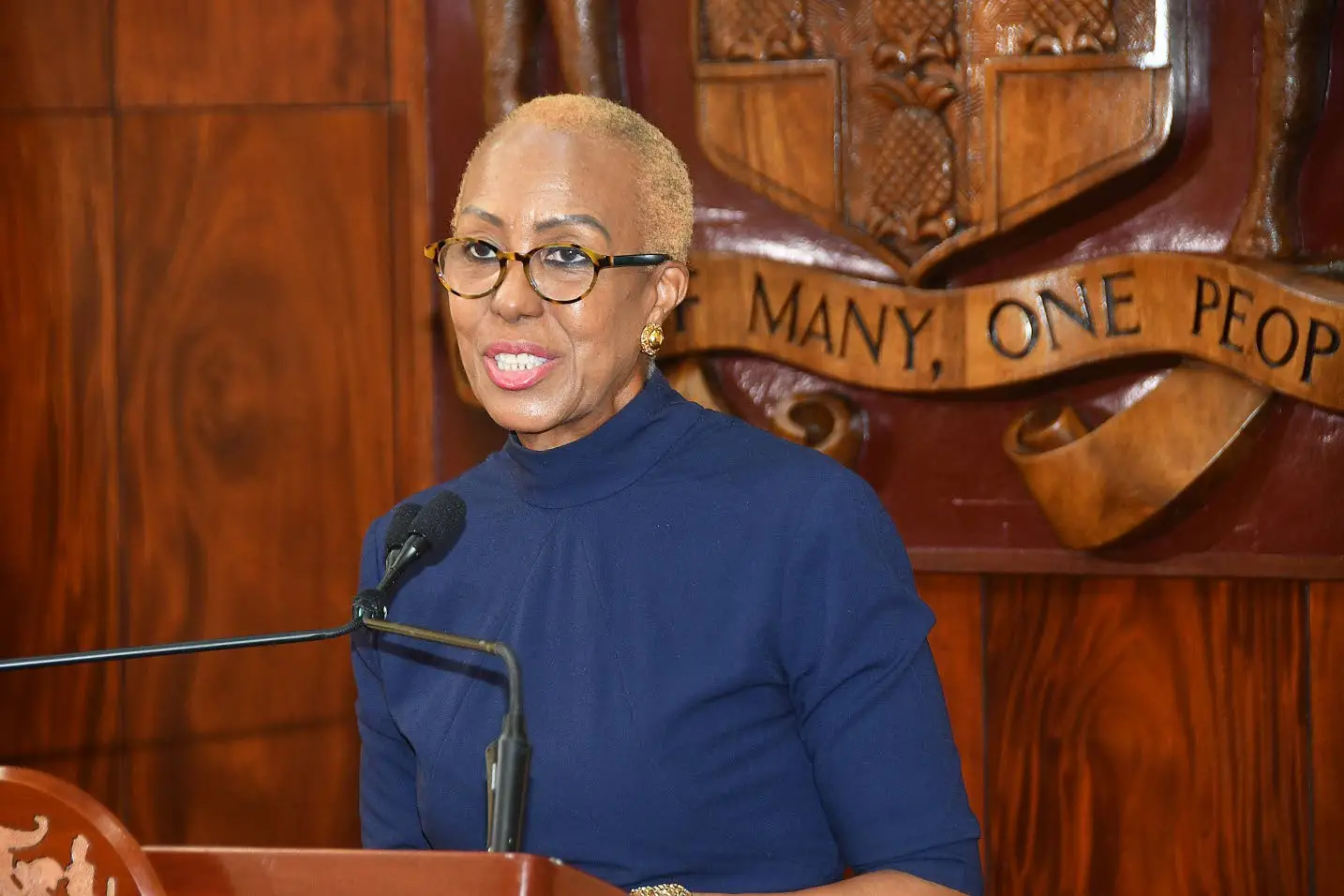
Sound advice for J’can immigrants
The concern was palpable at Ambassador Audrey Marks’s first online Let’s Connect meeting for the new year. She spoke about the Jamaicans who have been affected by the new US immigration policy. The keynote speaker was Finance Minister Fayval Williams, whose presentation had notes of hope for those Jamaicans seeking to be repatriated.
Ambassador Marks noted that of the thousands being repatriated in the Caribbean, only 0.5 per cent is Jamaican. Of the 56 who arrived in Jamaica last week, only seven had criminal records, while the others had immigration offences. Those with immigration issues, she emphasised, should not be regarded as criminals, and every Jamaican will be welcomed home. She noted many Jamaicans have been calling for instructions on how to get home without being subject to deportation and they have been receiving assistance from the embassy and consulates.
Attorneys-at-law Sekou Clarke and Xavier Francis spoke on immigration concerns. Clarke has expanded his legal services in Florida and was named by Forbes magazine as one of the ‘Top 40 Entrepreneurs to Watch’ in 2025. Francis has been running a leading immigration firm for eight years.
Clarke said there was collateral damage when undocumented immigrants are separated from their blended families. He noted that in one US Immigration and Customs Enforcement (ICE) operation, they went to a location to take an illegal immigrant with a criminal record and “scraped up” others. He advised that getting married to an American citizen is not the only way to become a legal immigrant. He said the T Visa could be applied for by people suffering from discrimination while the U visa can be used for victims of crime who would have to furnish a police statement.
There is also the EB-5 visa available for investors or those who have an existing business. Francis also noted that holders of the F1 student visa could self-sponsor themselves for green cards if they have awards for outstanding performance or are members of professional organisations.
Francis gave three tips to cope with the new zero tolerance position:
*Don’t overstay your visa
*Legal immigrants should carry a copy of their documentation on their phones as every immigrant is at risk of being taken into custody
*Reconsider the alternative pathways that exist.
Ambassador Marks said that Jamaicans who wish to return to their country should communicate with the embassy and via Diaspora organisations. The Jamaican Embassy website has been recently loaded with specific information on immigration matters.
Members of the Jamaican Diaspora continue to preserve our culture and want to give back to their homeland. Florida Consul General Oliver Mair announced that the fourth annual celebration of Marcus Garvey would be held on February 18. Young Tiffany Haynes expressed her wish to do more for Jamaica and asked for a more intentional programme to strengthen ties.
Update from Minister Williams
Minister Williams noted Prime Minister Andrew Holness’s ASPIRE programme highlighting access, safety and security, people, infrastructure, reforms, and economic resilience. She asked her audience to “take comfort that there has been investment in a police force that has been equipped and is undergoing training for engagement with the public”. She noted that students now have an extra two years in high school to get them job-ready and that the HEART/NSTA Trust programme offered training in various aspects of industry.
Commenting on the damage to infrastructure due to hurricanes and heavy rains, she said the Government had the financial wherewithal to make significant repairs as good roads were an enabling factor for the country. She referred to Jamaica’s lowest-ever unemployment rate and said that we had more broad-based opportunities instead of just a few industries, and noted that our debt-to-gross domestic product (GDP) had moved from 147 per cent to 70 per cent, citing financial stability and fiscal responsibility.
She noted that the Government will be using artificial intelligence (AI) and big data for greater efficiency. This cannot come too soon as one guest spoke about her frustration in getting land titles for her parents in Jamaica. After unanswered calls, she had to travel here, using the funds that would have been better spent on investment. Productivity continues to be a major challenge for the public sector.
Good news on tourism
Investor Peter Charrington was also on the call and Minister Williams announced that his joint project with the Government, Harmony Cove, had moved forward with a presentation ready for Cabinet review on Monday, February 3. This is a US$1-billion luxury resort project slated for Trelawny.
Meanwhile, Sandals Resorts, Riu, and the newly opened Princess Hotel have been enjoying excellent occupancy rates, ensuring continued employment of thousands of Jamaican hotel workers. Incentives such as housing and insurance will make hotel careers attractive.
In a report on the opening of the Princess Hotel by Jamaica Observer writer Anthony Lewis, the prime minister is quoted as saying: “We are going to create the best tourism corridor in the Caribbean when we have completed that bypass from Montego Bay straight through to Negril… We have some excellent plans for Negril, including a new airport [and] two parks — one will be a beach park and the other will be an Eco park.”
The rapidly growing tourism industry offers opportunities for repatriated Jamaicans. Ambassador Marks assured that there are plans in place to assist them to reintegrate with the assistance of non-governmental organisations.
Farewell, great men
Jamaica said farewell recently to two pillars of education, St Lucia-born Professor Roy Augier and Dr Alfred Sangster. Only last December an alert Professor Augier’s 100th birthday was celebrated at Aquinas Centre. There was an outpouring of love and gratitude from his former students on social media as they commented on his mentorship.
In its tribute to Prof Augier, the Caricom Secretariat wrote: “Professor Augier was well known for his seminal contribution to advanced studies in history. He served in key leadership roles, guiding the Caribbean Examinations Council (CXC), a CARICOM Regional Institution, over many years. His distinguished service at The University of the West Indies included both the Cave Hill and Mona campuses. Sir Roy’s influence on the presentation, interpretation and perception of Caribbean history was solidified by his contributions to several important publications, including the pivotal work, The Making of the West Indies.
Dr Alfred Sangster was the visionary and dynamic head of the College of Arts, Science and Technology (CAST) from 1970 to 1976, adding 50 academic programmes and growing the student population from 1,500 to 6,000. He brought CAST to university status with its renaming to University of Technology, Jamaica (Utech), then retired the year after. Dr Sangster was the founding chair of Citizens for Free and Fair Elections, served on the Public Service Commission, and played lead roles in regional and international groups.
In his tribute to Dr Sangster, Utech President Dr Kevin Brown noted, “In addition to his administrative accomplishments, Dr Sangster authored the influential book The Making of a University – From CAST to
Utech, published by Ian Randle Publishers in 2010. This seminal work chronicles the evolution of the institution and provides invaluable insights into the challenges and triumphs of building a university.”
Our deepest sympathy to the loved ones of Professor Roy Augier and Dr Alfred Sangster.
Jean Lowrie-Chin is an author and executive chair of PROComm, PRODEV, and CCRP. Send comments to lowriechin@aim.com.






















